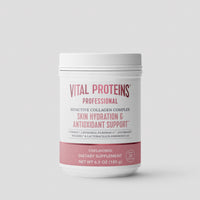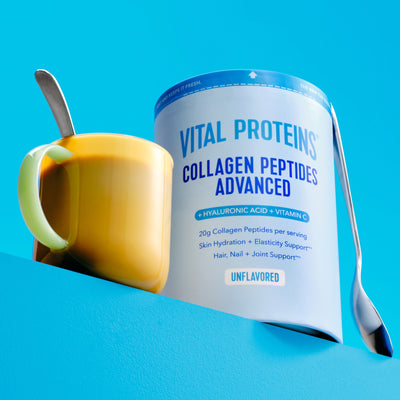September is a big month for wellness seekers who are either first-time or seasoned Whole30-ers. Despite the popularity of the 30-day program, which our September Guest Editor – a Whole30® certified coach – said changed all areas of her life, co-founder Melissa Hartwig Urban admits the short-term eating plan can be challenging.
“The first half of the program can be the hardest, as your body adjusts to your new habits,” Urban tells Lively of what newcomers can expect.
Completing a round of Whole30 may seem intimidating but Urban’s nuggets of wisdom, as well as her own experience with the program she helped create, will motivate you to start and successfully cross the finish line. Read on for our interview with Urban below.
Lively's Interview with Whole30® Co-Founder Melissa Hartwig Urban

Lively: Here’s a very loaded question for you: How has Whole30 improved your own life? Have you struggled with completing a round in the past?
Melissa Hartwig Urban: I’ve never struggled with the Whole30, in the sense of “I don’t want to do this anymore, I want to quit.” As a Gretchen Rubin Upholder, once I say I’m going to do something, I just do it. I’ve definitely had moments of frustration, however! (I remember crying in a Mexican restaurant on a business trip once, because there was sugar in the salsa. WHY.)
The Whole30 is one of just a handful of what I would consider truly life-changing experiences. It gave me a new foundation for “feeling good.” It facilitated so many things – my career, fitness pursuits, hiking and self-confidence in just about everything. It showed me the power of short-term self-experiments to help me level up my life, a process I’ve since applied to things like not drinking and talking to strangers. When I say the Whole30 isn’t just about food, I mean it. The program may be a 30-day dietary reset, but the impact will spill over into every single area of your life.
Related Articles
L: Self-care is such a hot topic right now. Following a nutrient-rich diet is important, but how else do you practice self-care?
MHU: If self-care were all long bubble baths and deep-tissue massages, we’d all be practicing it MAYBE once a month, if we’re lucky. I like to look for tiny moments of self-care throughout my day; things that are actually doable but add up and make a real difference. Things like saying “no” to something I don’t really want to do, putting my phone on “do not disturb,” buying myself flowers, not making myself finish the book (so liberating!) or going to bed extra-early. I also know that doing something that feels good NOW, but will bring me guilt, shame or stress LATER, isn’t actually self-care. That’s helped me move into self-care practices that are truly in my highest interest.

L: We know your son is still young – how have you started showing him about healthy living?
MHU: Food is a big one – he’s six now, and he mostly eats what we eat, but for special occasions we let him make his own choices. We talk to him about the consequences of eating things like sugar (which makes him less of a good listener, often leading to a loss of privileges) and dairy (for him, eczema). Drawing those correlations – “sugar this late at night makes you cranky, and I’d hate to miss our book before bed” – helps him make better choices for himself. We also spend a lot of time in the Utah mountains, and encourage him to be barefoot, play in the dirt, pick up sticks and explore. I notice a marked difference in his behavior when he gets lots of unstructured outdoor time.
L: What advice would you give someone just starting out Whole30?
MHU: Plan and prepare more than you think you need to. No one ever said, “I wish I didn’t have so much tasty food in my fridge,” and knowing you have emergency food in your desk at work, a few freezer meals at the ready at home, and a few staples (like eggs, roasted veggies or shredded chicken) that will let you throw together dinner in a hurry will help relieve some of the stress associated with Whole30 unknowns. I also encourage people to think about stressful situations they may encounter during the program (family dinner, business travel, birthday party) and how you’ll handle not just the food and drink but talking to friends and family about your health commitment. (LOTS of tips there in Food Freedom Forever.)
L: What advice would you give to someone who's halfway through and struggling?
MHU: First, I’ll remind you it’s not the Whole10 (or the Whole12, or even the Whole24). The first half of the program can be the hardest, as your body adjusts to your new habits. It’s 30 days for a reason, and to evaluate whether or not it’s “working” this early is really not doing the process justice. Patience. I’ll also ask you to revisit your “why,” and urge you to find areas of progress, no matter how small. Why did you start the program in the first place? What’s changed since you’ve begun? Even if the only thing you can say is, “I’ve stuck to my health commitment for 12 straight days,” can’t you see that’s a HUGE win!? (But I bet if you really think about it, you’ll find even more points of progress.)
Now that you’ve got a tiny bit of momentum, use this moment to connect with another Whole30-er through our forum or social media to talk about how you’re feeling and why you’re down. You’re not alone, and the Whole30 can be challenging! So, reach out and ask for help. Just the simple act of connecting can provide you with the support, encouragement, and accountability you need to keep going.

L: What do you say to people who call Whole30 "too restrictive"?
MHU: Generally, that comes from people who don’t understand the purpose or foundation of the program. The Whole30 is built on the framework of an elimination diet. Elimination diets have been around since the 1920s and are still considered the gold standard in identifying food sensitivities, even when compared to lab testing. They do restrict the foods in question, but only for a short time. One common misconception about the Whole30 is that it’s “not sustainable.” It’s not meant to be! I’m not saying this is how you should eat forever; the program is just a structured, short-term self-experiment.
For 30 days, the Whole30 eliminates food groups that are commonly problematic (according to both the science and our clinical experience) in one of four areas: cravings, hormones and blood sugar, digestion and the immune system. At the end of the 30 days, you reintroduce those food groups slowly and systematically, and compare your experience. It’s like a scientific experiment, giving you all kinds of valuable information about how individual foods work for YOU, in your unique system. After the Whole30 is over, use that information to create the perfect diet for you — what we call your "food freedom."
L: And lastly, the question we ask everyone: Do you have a favorite Vital Proteins product?
MHU: I’m a purist, so your original Collagen Peptides is still my favorite. I use the individual serving stick packs, as they’re perfect for travel. I love knowing I can add a quick 10g of collagen to just about anything (water, coffee, tea) on the go.















